Different types of forces
A list of some different types of forces that are encountered regularly in physics is shown below.
Normal force:
Definition: The normal force is the force exerted by a surface on an object.
Direction: Perpendicular to and away from the surface.
Symbol: FN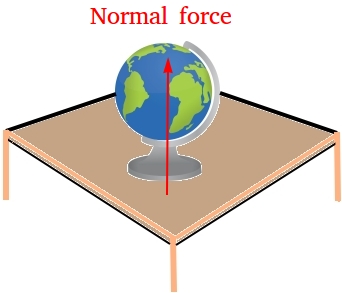
Example: Put a book or a globe on a table. The table exerts a normal force on the book or the globe which prevents the book or the globe from falling down.
Frictional force:
Definition: The frictional force is the force that resists sliding motion between surfaces.
Direction: Parallel to the surface and opposite the direction of sliding.
Symbol: Ff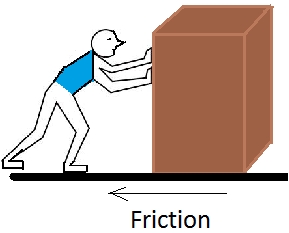
Example: You put a book on the floor and you kick it so it slides on the
floor. The book will eventually stop sliding because of the force of
friction.
Weight:
Definition: The weight is the force caused by the gravitational attraction between two objects. Generally this force happens between the earth and an object.
Direction: Straight down toward the center of the earth.
Symbol: Fg
Example: Every time you jump into the air, your weight is the force that keeps pulling you down. If you put a globe on a table, the weight is the force that pushes down on the table.
Tension:
Definition: The tension is the pull exerted by a rope, cable, or string when attached to an object and stretched tight.
Direction: Away from the object or the point of attachment and parallel to the rope, cable, or string.
Symbol: FT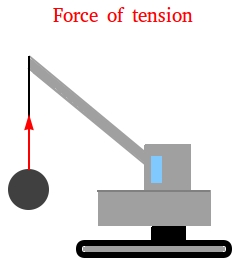
Example: Wrap a rope around a box and using your hand to drag the box with the rope. A tensional force will be created along the rope.
Thrust:
Definition: The thrust is the force that can move objects such as air planes, rockets, cars, or people.
Direction: Same direction as the acceleration of the objects.
Symbol: Fthrust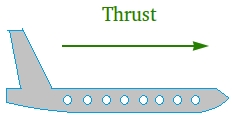
Force of a spring:
Definition: The push or pull a spring exerts on an object.
Direction: Opposite the displacement of the object.
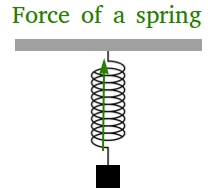
Example: A weight pulls down a spring. The spring pulls up with a force.
Summary of the different types of forces discussed in this lesson
- Normal force
- Force of friction
- Weight
- Tension
- Thrust
- Force of a spring